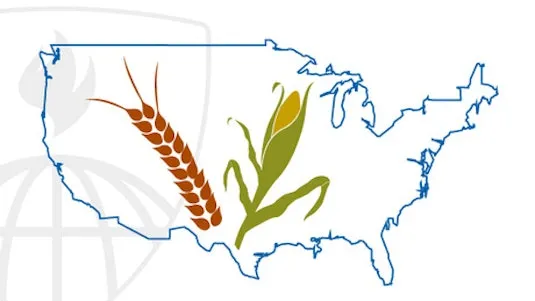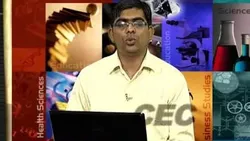
An Introduction to the US Food System: Perspectives from Public Health 
Learn the basics of An Introduction to the U.S. Food System: Perspectives from Public Health ▼
ADVERTISEMENT
Course Feature
![]() Cost:
Cost:
Free
![]() Provider:
Provider:
Coursera
![]() Certificate:
Certificate:
Paid Certification
![]() Language:
Language:
English
![]() Start Date:
Start Date:
7th Aug, 2023
Course Overview
❗The content presented here is sourced directly from Coursera platform. For comprehensive course details, including enrollment information, simply click on the 'Go to class' link on our website.
Updated in [March 06th, 2023]
This course provides an introduction to the US food system from a public health perspective. Participants will gain an understanding of the historical and political factors that have shaped the current food system, and explore alternative approaches from farm to fork. Led by a team of faculty and staff from the Johns Hopkins Center for a Livable Future, the course will also feature guest lecturers from a variety of disciplines, including public health, policy and agriculture. By the end of the course, participants will have a better understanding of the US food system and how food production practices and what we choose to eat impacts the world in which we live.
[Applications]
Those who complete this course will have a better understanding of the US food system and the public health implications of food production and consumption. They will be able to identify key historical and political factors that have shaped the current food system and consider alternative approaches from farm to fork. Additionally, they will be able to apply their knowledge to their own lives and communities, and advocate for food system changes that promote public health, equity and environmental sustainability.
[Career Paths]
1. Food System Analyst: Food system analysts are responsible for researching and analyzing the various components of the food system, such as production, distribution, and consumption. They must be knowledgeable about the current trends and developments in the food system, and be able to identify potential areas of improvement. This job is becoming increasingly important as the food system is becoming more complex and interconnected.
2. Food Policy Advocate: Food policy advocates work to influence policy decisions related to the food system. They must be knowledgeable about the current food system and the potential impacts of policy decisions on public health, the environment, and food security. This job is becoming increasingly important as the public becomes more aware of the impacts of food production and consumption on the environment and public health.
3. Food System Educator: Food system educators are responsible for educating the public about the food system and its impacts on public health, the environment, and food security. They must be knowledgeable about the current food system and be able to communicate complex concepts in an accessible way. This job is becoming increasingly important as the public becomes more aware of the impacts of food production and consumption on the environment and public health.
4. Sustainable Agriculture Specialist: Sustainable agriculture specialists are responsible for developing and implementing sustainable agricultural practices. They must be knowledgeable about the current trends and developments in sustainable agriculture, and be able to identify potential areas of improvement. This job is becoming increasingly important as the public becomes more aware of the impacts of food production and consumption on the environment and public health.
[Education Paths]
1. Nutrition Science: Nutrition science is a field of study that focuses on the relationship between diet and health. It involves the study of the effects of nutrients on the body, including the role of vitamins, minerals, and other dietary components in maintaining health and preventing disease. Nutrition science is a rapidly growing field, and there are many degree paths available, including bachelor's, master's, and doctoral degrees. Developing trends in nutrition science include the use of technology to track dietary intake, the use of data to inform public health policy, and the use of nutrition to prevent and treat chronic diseases.
2. Food Science: Food science is the study of the physical, chemical, and biological properties of food and the processes used to produce, store, and prepare it. Food science degrees are available at the bachelor's, master's, and doctoral levels. Developing trends in food science include the use of technology to improve food safety, the use of data to inform food production and processing, and the use of food science to create healthier and more sustainable food products.
3. Public Health: Public health is the science of protecting and improving the health of individuals and communities. Public health degrees are available at the bachelor's, master's, and doctoral levels. Developing trends in public health include the use of data to inform public health policy, the use of technology to improve access to health care, and the use of public health to address social determinants of health.
4. Agricultural Science: Agricultural science is the study of the production and management of food, fiber, and other products from plants and animals. Agricultural science degrees are available at the bachelor's, master's, and doctoral levels. Developing trends in agricultural science include the use of technology to improve crop yields, the use of data to inform agricultural practices, and the use of agricultural science to create more sustainable and equitable food systems.
Course Syllabus
Is Climate Change Vindicating Malthus? Food Security and the Right to Food
Welcome to our short course on the U.S. food system. In this first series of lectures, we dig into the very important concepts of food systems, food security and intergenerational equity and begin to explore what we eat, how that food is produced, and how our dietary choices impact our health and the health of the planet. This broad overview lecture lays the foundation for the rest of the course.Food System Sustainability and Resilience
This lesson expands on the concepts of food system sustainability and resilience, and describes strategies that could dramatically improve the food system and the ability of future generations to feed themselves.Ecological Perspectives on Food Production
The 1938 USDA Yearbook of Agriculture stated, “Essentially, all life depends upon the soil ... There can be no life without soil and no soil without life; they have evolved together”. In this module, we will take a very brief look at the importance of methods of food production for sustainability, resilience, food security and health.Food Animal Production and Public Health
We will now examine the livestock and seafood industries, which we have touched on in previous modules as a key driver of the global food system. As incomes rise around the world, so too does the global collective appetite for meat. Some of our greatest challenges and debates of the 21st century are rooted in the rising demand for animal protein in an era of dwindling resources and climate change. NOTE: This lecture refers to other lectures offered in this or related full for-credit courses at the Bloomberg School of Public Health.Food and Farm Policy Perspectives
In the next set of lectures, we begin to explore food and farm policy, a huge and complex topic. Roni Neff returns with an overview of the history and content of the current farm bill and why it really should be called a ‘food bill’, considering the magnitude of its impact on public health. Then Mark Winne will share his experiences as an advocate for community food security and regional food systems here in the U.S. For those of you interested in the international perspective of food policy, we have provided in the readings list a link to a terrific talk by Olivier deSchutter, the former UN special rapporteur on the Right to Food.Improving Food Systems: Stories from the Field
In this final module of the course you will hear from real people working to build a healthier, more sustainable food system. First, Michael Heller of Clagett Farm in Maryland will share his farming philosophy and how he links his farm to the local community near Washington DC. Then you’ll hear about Meatless Monday as an example of using health communication campaigns to change the food system from the demand-side. The optional Honors lesson includes two short films produced by CLF showcasing projects and people around the U.S. that are improving the food system from field to plate.Pros & Cons

Interesting and engaging lectures.

Comprehensive and understandable.

Provides essential information.

Recommendations for rebuilding food system.

Raises awareness of food impacts.

Not as dry as expected.

Too broad to cover topics in depth.

No certificate for low income learners.

Not enough courses relating to food.

Cultural and subjective norms not discussed.
Course Provider

Provider Coursera's Stats at AZClass
Discussion and Reviews
0.0 (Based on 0 reviews)
Explore Similar Online Courses

Ethical Hacking: Understanding Ethical Hacking

JavaScript DOM Dynamic Web interactive content Boot Camp

Python for Informatics: Exploring Information

Social Network Analysis

Introduction to Systematic Review and Meta-Analysis

The Analytics Edge

DCO042 - Python For Informatics

Causal Diagrams: Draw Your Assumptions Before Your Conclusions

Whole genome sequencing of bacterial genomes - tools and applications

The Ideal of Self-Governance: Public Policy Beyond Markets and States

Public Administration

Compelling Narratives for Complex Decisions: Policy Analyst Fundamentals
 Related Categories
Related Categories
 Popular Searches
Popular Searches
Quiz
 Submitted Sucessfully
Submitted Sucessfully
1. What is the main focus of this course?
2. What will be discussed in this course?
3. Who will be leading the course?


Start your review of An Introduction to the US Food System: Perspectives from Public Health